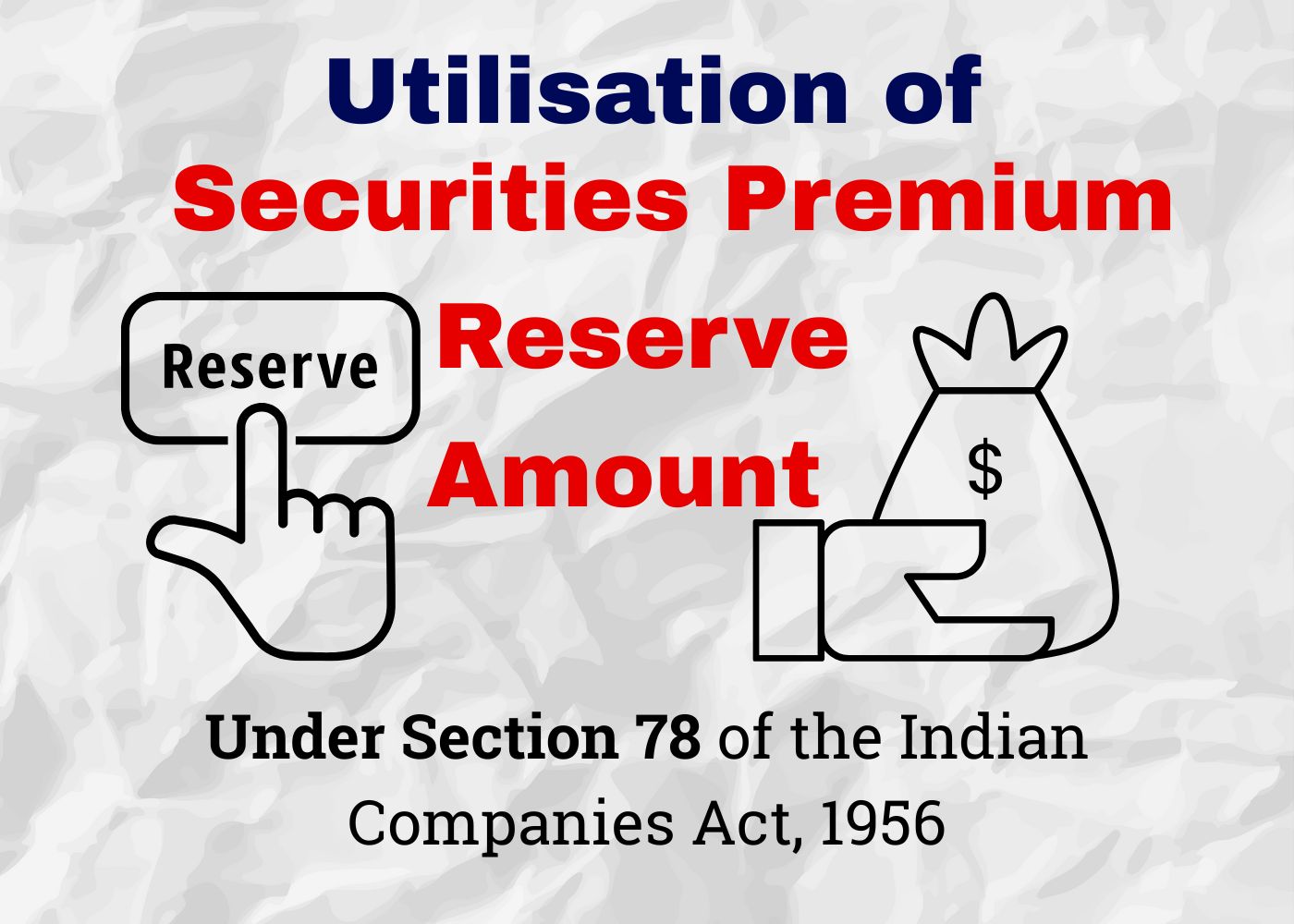Utilisation of Securities Premium Reserve Amount Under Section 78 of the Indian Companies Act, 1956
Unique Learning Academy
15/09/2025
Accountancy XII
Class 12,
Accounting for Share Capital

Introduction:
When a company issues shares at a premium (for example, a share of face value ₹10 issued at ₹12, i.e., ₹2 premium), the extra amount collected is credited to the Securities Premium Reserve Account.
As we know there is no legal restriction on issue of shares at a premium but there are some specified purposes laid down under section 78 of the Companies Act, 1956 for the utilisation of securities premium. These are as follows:
- To write off the preliminary expenses of the company.
- To write off the expenses, commission or discount allowed on issue of debentures of the company.
- To issue fully paid bonus share to the shareholders of the company.
- To pay premium on redemption of redeemable preference shares or debentures of the company.
- To buy-back of its own shares as per section 77-A.
✅ Permitted Uses of Securities Premium Reserve:
1. To Write Off Preliminary Expenses-Covering Those Startup Costs
Meaning: Every company has initial expenses for getting off the ground—think registration fees, legal costs, and stamp duties. These are called “preliminary expenses.” The law allows a company to use its securities premium to wipe these costs off its books.
Imagine this: A new tech startup spent ₹50,000 on lawyers and fees to incorporate. They can use the premium they earned from their first share issue to clear these incorporation expenses.
2. To Write Off Expenses, Commission, or Discount on Issue of Debentures-Absorbing Debenture Issuance Costs
Meaning: When a company raises money by issuing debentures (a type of loan), it might have to offer a discount to attract buyers or pay a commission to brokers. These costs can be written off from the premium reserve.
For instance: If a company issues ₹1,00,000 worth of debentures at a 5% discount, it only receives ₹95,000. The ₹5,000 shortfall can be written off using the securities premium.
3. To Issue Fully Paid Bonus Shares-Funding Bonus Shares for Shareholders
Meaning: This is a common one. When a company wants to reward its shareholders by issuing free “bonus shares,” it can use the securities premium reserve to ensure those new shares are fully paid-up.
Picture this: You own 100 shares. The company announces a 10% bonus issue, so you get 10 new shares. The money to cover the value of those new shares can come from this reserve.
4. To Pay Premium on Redemption of Redeemable Preference Shares or Debentures-Covering the Extra Cost of Cashing Out Investors
Meaning: Some preference shares or debentures come with a promise that the company will buy them back at a future date (a process called a redemption of debentures), sometimes for a price that’s higher than the original face value. That extra amount—the redemption premium—can be paid from the securities premium reserve.
Example: A company needs to redeem debentures with a ₹100 face value but promised to pay ₹110 for each. The additional ₹10 per debenture can legally come from the securities premium fund.
5. To Buy Back Its Own Shares (Section 77A)
- Meaning: If the company decides to repurchase its own shares from shareholders from the market (a process called a buy-back),, securities premium can be used for this buy-back.
- Example: If a company buys back shares worth ₹5,00,000, part of this amount can be funded from securities premium reserve.
Easy to Remember:
Securities Premium Reserve can be used only for special purposes:
👉 Write off company formation & issue expenses
👉 Write off discount/commission on debentures
👉 Issue of bonus shares
👉 Redemption premium on preference Ashares/debentures
👉 Buy-back of shares
The Bottom Line:
In short, the Securities Premium Reserve isn’t free-for-all money. It’s a restricted fund meant for specific, capital-related activities. It’s primarily used to adjust for certain issuance costs, reward shareholders without using cash (bonus shares), or fulfill promises made during complex financial transactions like redemption and buy-backs.
Recent Posts
Have Any Question?
Wish to enquire about our teaching pedagogy? Contact Us via Call or Email
- +91-9136-336-336
- contact@uniquelearning.in
